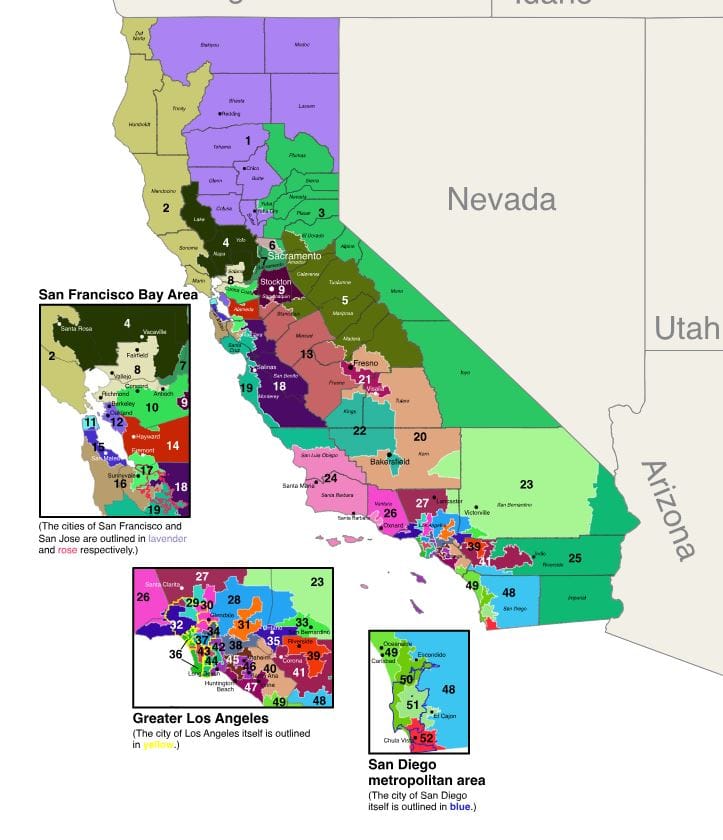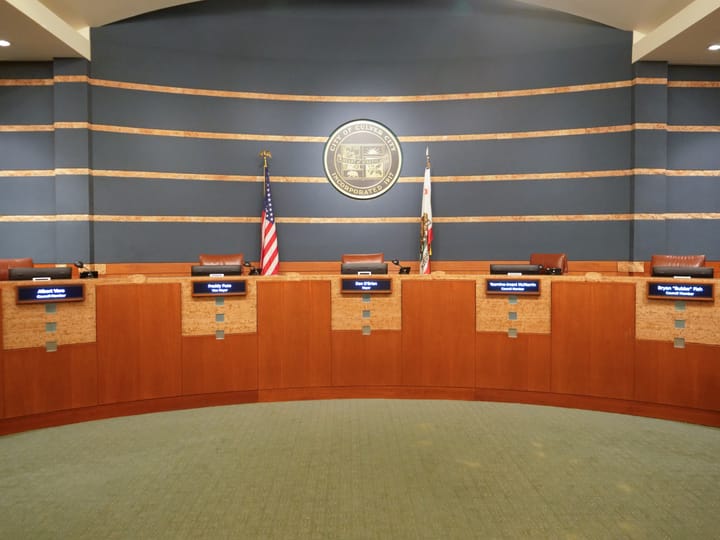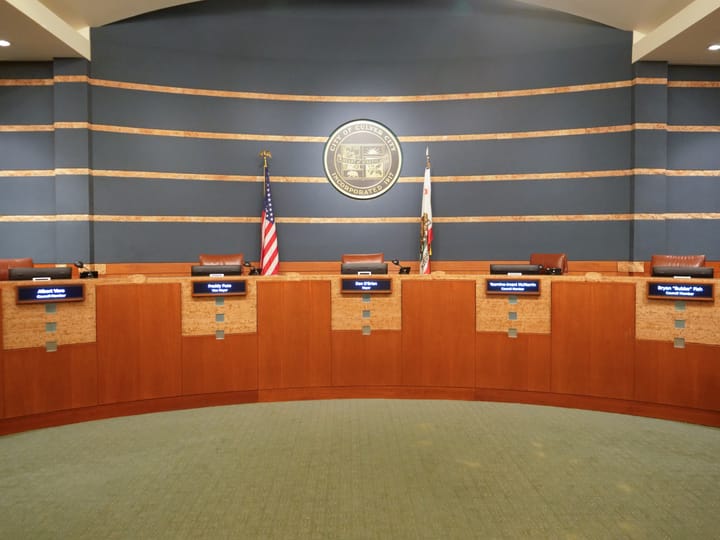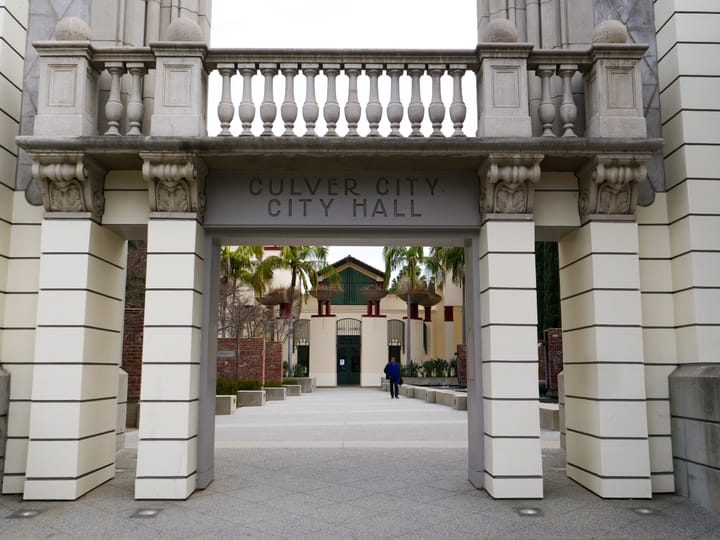What's at stake for Culver City with Proposition 50
Discussions about the bill — which will allow California lawmakers to change borders of Congressional Districts — have picked up locally.

Culver City is not the only jurisdiction with a special election this year.
California voters will make a decision on Proposition 50 in a Special Election held on November 4 that could have long-lasting implications on the state's federal representation. Prop 50 would allow California lawmakers to redraw congressional districts in the state, paving the way for them to create five new Democratic-leaning seats in the U.S. House of Representatives for the 2026 Midterm Elections.
The move is a direct response by California to a similar move in Texas, where lawmakers adjusted district borders to create five districts that are expected to remain Republican based on voting patterns in those areas.
Here's what you need to know about November's election:
How will Prop 50 affect you?
At a local level, Culver City is mostly unaffected by Proposition 50. The districts whose borders are being redrawn are outside of the Los Angeles area.
The Districts being targeted for border changes and the counties they currently serve are as follows:
- District 1: Butte, Colusa, Glenn, Lassen, Modoc, Shasta, Siskiyou, Sutter, Tehama, and most of Yuba
- District 3: Plumas, Sierra, Nevada, Placer, Alpine, Mono, Inyo, El Dorado, Sacramento, and parts of Yuba
- District 22: Porterville, Lindsay, Shafter, Wasco, Delano, McFarland, Arvin, Lamont, Corcoran, most of Kings, parts of Tulare, parts of Kern, east side of Bakersfield, west and south sides of Tulare, and the south side of Hanford
- District 41: Riverside (Most of Corona, including Norco, Lake Elsinore, Canyon Lake, and parts of Eastvale, parts of Perris, parts of Menifee, parts of Wildomar, and parts of Murrieta)
- District 48: East County, San Diego; and parts of Riverside
At its core, Proposition 50 is being presented as solely a response to the move made in Texas, as demonstrated by the title on the ballot: "Authorizes Temporary Changes to Congressional District Maps in Response to Texas' Partisan Redistricting."
Democratic leaders fear that the move in Texas is part of a broader plan to position Republicans to secure lasting power in the Federal Government. Other states have also shown the potential to follow in Texas' footsteps, with Missouri approving a new congressional district map Friday that will add a Republican leaning seat to the U.S. House if it survives legal challenges.
The move comes during an unprecedented time of turnover among congressional lawmakers. Reporting by NPR suggests a record number of federal lawmakers are not seeking reelection in 2026. As of 2 a.m. today, 10 members of Congress and 27 members of the House of Representatives have announced they will not be running for reelection.
While not directly impacted by the bill, key local figures have come out in support of the redistricting measure, citing the gravity of the moment and the consequences that could come with manufactured Republican control of the federal government.
"As much as I don't want to change the integrity of the way we've adopted redistricting, this is a special circumstance where we need to fight and not be passive," LA City Councilmember Adrin Nazarian told LAist following the LA City Council's unanimous vote to support Proposition 50.
The Culver City Democratic Club also released a statement last week announcing their support for the measure, noting that Isaac Bryan, who is the representative of California's 55th Congressional District that includes Culver City, has been actively supportive of the bill.
"When an unprecedented power grab threatens to destabilize the foundations of our democracy, we can and must do everything necessary to stand in the way," Bryan said of Proposition 50.
"That is who we are in California."
What are critics saying about Prop 50?
Opponents of the bill argue that allowing lawmakers to redistrict without citizen input can establish a dangerous precedent that could be used to completely change district borders according to political needs. They point to the current system and the power it would take away from the people should that system be retired as reasoning behind their dissent.
Under current law, redistricting can only occur following the approval of the California Citizens Redistricting Commission, which was established in 2008 by the VOTERS First Act. This Commission most recently made changes to California's Congressional Map in 2021, and would not make additional changes until 2031 in the current system.
As written, Proposition 50 takes the ball out of the commission's court only temporarily. It would require the use of temporary maps enacted by lawmakers starting in 2026 and would return authority to the commission beginning in 2031.
However, critics fear that politicians will move in the coming years to ensure that the changes made by Proposition 50 are extended and effectively made permanent.
"Just like 'temporary' taxes, fees, and regulations, once politicians have power, they never give it back to the people," a statement from political movement Reform California reads. "Letting Sacramento politicians' temporarily' kill off a piece of democracy sets a dangerous precedent that could be used by future politicians to undermine constitutional safeguards."
The cost of the election is another matter of concern for opponents of Prop 50. While the ballot statement portrays the impact on state finances as "one-time costs to counties of up to a few million dollars statewide," there is no official cost estimate for this election.
"It's a developing issue right now," California Department of Finance Legislative Coordinator Millie Yan said at a Senate Education Committee bill hearing held last Wednesday. "We are working with the Secretary of State to develop a schedule."
Republicans in the California Assembly have estimated more than $235 million as the cost. The most recent special election — the 2021 recall effort against Governor Gavin Newsom — cost about $200 million.
To view the proposed map, click here.




Comments ()